-
Work on What Has Been Spoiled
Originally published on 5 October, 2022
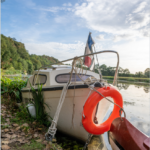 As the waters of the COVID-19 pandemic’s tsunami of disruption recede, our world of experiences and expectations have changed, too. What had formerly been familiar now has an uncanny cast to it; favourite places for entertainment, work, travel, recreation, places of worship, and healthcare institutions look and operate unlike they ever used to, even as restrictions to access are lifted.
As the waters of the COVID-19 pandemic’s tsunami of disruption recede, our world of experiences and expectations have changed, too. What had formerly been familiar now has an uncanny cast to it; favourite places for entertainment, work, travel, recreation, places of worship, and healthcare institutions look and operate unlike they ever used to, even as restrictions to access are lifted.So many of us sat through this pandemic, chafing at the bit to go back to having things the old way, the familiar way: the way we, and our ancestors before us, made them. But, these things are forever changed, in our memories, in our minds, in our emergence back into them post-pandemic.
Rather than trying to fit all the pieces back in, as they once were, imagine instead that we had been afloat in an Ark, such as that of the Biblical Noach. We and all the living beings gathered into it, have been weathering a Great Flood. In Noach’s Ark, do you think that the passengers all imagined, in their human and non-human minds, that things would be just the same once the rain stopped?
Now, imagine yourself after a similar pandemic great flood, jostled and perhaps cast afloat: and the waves have relaxed. Deposited by a gentle surf, face down upon a wet sand of some strange beach; exhausted, grateful for the solid land, confused. Yet, the landscape is not unfamiliar.Humanity has been tossed about. Regardless of our medical and scientific experts attempts to control Nature’s emergent virus-child, the Novel Coronavirus, it has been an exhausting two-plus years for those of us who have survived. We mourn the losses of loved ones, of means of livelihood, neighbourhoods, sources of supplies and food, and importantly, patterns and rituals that we had always relied upon for comfort and support.
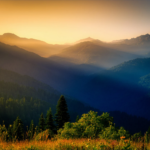 Our earliest traditions were arose from these reliable things of Nature: the sunrise, the sunset, the seasons. Weather patterns of the ancient lands where our beliefs and lore were birthed, are now, too, washed over with sand and debris. We dig to find and restore them. But they are weighted down, broken in places, and entangled with seaweed.
Our earliest traditions were arose from these reliable things of Nature: the sunrise, the sunset, the seasons. Weather patterns of the ancient lands where our beliefs and lore were birthed, are now, too, washed over with sand and debris. We dig to find and restore them. But they are weighted down, broken in places, and entangled with seaweed.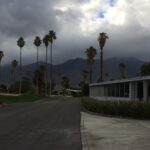
© Susan J Katz 2018 When I lived in the remote desert of the American southwest a few years ago, my family put up a stake of money for a lovely Oneg Shabbat dessert reception at the synagogue I attended, in honour of a significant birthday milestone. I was going to chant the haftarah, the weekly reading from the book of Judges, that I had chanted at my Bat Mitzvah so many decades before. On the day of the Oneg, I awoke at sunrise to get ready for the 1-1/2 hour drive into town to the synagogue. Looking out the window of my mobile home, I saw that a torrential downpour had come down overnight.
Knowing how fragile and exposed the desert roads were, I checked the news and internet for word about the possible closure of the one road we had that ran 25 miles before connecting to a highway and the rest of the world. There was nothing from the department of transportation or any other news, so I got dressed and drove.
After the first 10 miles I suspected the worst outcome to the road caused by the storm because so many trucks and cars were heading back into town. But, I kept on going: because I had to get there to chant the Haftarah and celebrate with my friends and indulge in all the goodies my family had arranged for me.
After all, I reasoned, I had my little truck, and experience driving in slush and snow and unmarked roads in Alaska and as a Forest Ranger – and there was no report of a road closure, no signs on the road to go back: Just those darned vehicles heading towards me and back into town. Of course, there it was: after driving 22 of the 25 miles towards the highway the road was completely gone.
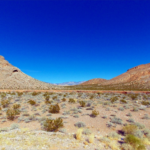 The desert had completely swallowed up the road. Wet sand, Brittle Bush and Cacti sat quietly there in what once was our lifeline out to the world, as if they had been there all along. I saw two police cars, real tough Hummers, slipping sideways in the muck and finally giving up, almost like a pair of mud wrestlers trying to slog through to the finish. It made me feel a bit better, that I’d made it as far as they did in my little truck, but it was also clear that after driving 45 minutes already, then having to turn around and drive 45 minutes back, then risk another 2 hours over the mountainous back route, if it was even open, I was going to miss my lovely special Shabbat event.
The desert had completely swallowed up the road. Wet sand, Brittle Bush and Cacti sat quietly there in what once was our lifeline out to the world, as if they had been there all along. I saw two police cars, real tough Hummers, slipping sideways in the muck and finally giving up, almost like a pair of mud wrestlers trying to slog through to the finish. It made me feel a bit better, that I’d made it as far as they did in my little truck, but it was also clear that after driving 45 minutes already, then having to turn around and drive 45 minutes back, then risk another 2 hours over the mountainous back route, if it was even open, I was going to miss my lovely special Shabbat event.I drove back and passed our little desert airport, wistfully thinking about running into the little terminal shack and commandeering some pilot who might be sipping a quiet cup of morning coffee to fly me out to the synagogue, which shared a fence with a large airfield anyway. Energy pulsed through me to do that; but I knew the reality was that Nature had been busy overnight, and that although I would not be there, my friends would be enjoying the spread of delectable food and decorations on my behalf. Finally, the phones were working again, and I was able to get a call out to one of them and let him know about the road washout. As urbanites, it would be harder for them to visualize how it was even possible for a road to completely disappear, but when you live in the wilderness, deferring to Nature is the rule.
So, what is the subject of my post, ‘Work on What Has Been Spoiled’?
 As we pick ourselves up from those pandemic years of being tossed about in waves of Coronavirus and slog up the beach, now castaways looking for something familiar, we are each likely carrying old expectations of what should be happening, or how things will look. But we all can see – they aren’t the same. We can try to force things to go as expected, as they had been before the flood, just as I had thought by running my little truck through the hopelessly washed away desert road to get to my duties at synagogue and my party. My idea of hijacking a pilot and flying into town would most likely have downgraded to me stealing an airplane and flying it, without any training in doing so.
As we pick ourselves up from those pandemic years of being tossed about in waves of Coronavirus and slog up the beach, now castaways looking for something familiar, we are each likely carrying old expectations of what should be happening, or how things will look. But we all can see – they aren’t the same. We can try to force things to go as expected, as they had been before the flood, just as I had thought by running my little truck through the hopelessly washed away desert road to get to my duties at synagogue and my party. My idea of hijacking a pilot and flying into town would most likely have downgraded to me stealing an airplane and flying it, without any training in doing so.The most likely outcome of such persistence in working things that have been spoiled, is to get stuck, get mad, and become very tired or fail. These days, people attempt to avoid this pain or failure with what is known as a ‘hack’. For example, taking a shortcut by making an illegal left turn onto a one-way street and then expecting everyone to get out of the way, and even blaming the law-abiding drivers of causing the resulting traffic jam.
As a friend put it, for the past many years we have been living in the, “I Got Away With It” culture.
If the ‘hack your way through and get away with it’ strategy is not appealing, I applaud you.
Our ancient wisdom texts have lovingly preserved stories for us to see and learn how to responsibly and morally respond to change. We can find a new way in our new world.
 An ear worm, a loop of rhythmic words, has been circulating in my brain the past few weeks: it repeats, ‘Work on what has been spoiled’. In fact this is one name for Hexagram 18 of the I Ching, the ancient Chinese Book of Changes. ‘Decay’ or ‘A Can of Worms’ is another translation for this Hexagram’s name. The I Ching is a two thousand year old book of wisdom from East Asia, created to help us understand how to determine our actions in the midst of life’s constant and inevitable changes. From learning how to understand imagery and metaphor, rather than rely upon analytical thinking and problem solving, we can find out where we are in a situation, and thus make decisions on how to proceed.
An ear worm, a loop of rhythmic words, has been circulating in my brain the past few weeks: it repeats, ‘Work on what has been spoiled’. In fact this is one name for Hexagram 18 of the I Ching, the ancient Chinese Book of Changes. ‘Decay’ or ‘A Can of Worms’ is another translation for this Hexagram’s name. The I Ching is a two thousand year old book of wisdom from East Asia, created to help us understand how to determine our actions in the midst of life’s constant and inevitable changes. From learning how to understand imagery and metaphor, rather than rely upon analytical thinking and problem solving, we can find out where we are in a situation, and thus make decisions on how to proceed.I saw this cartoon and it caught my attention:
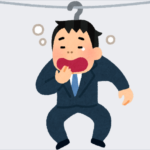 The figure of a sleepy man yawning on his way to work on the subway, suspended from the hanger still in his dress suit, is supposed to be funny. And, isn’t it so true? Boredom has set in where once competition and higher education had urged young minds to excel, to think outside the box and be curious and inventive and creative and courageous. Education meant to open our minds is now just an ornament to put on a job resumé to gain employment and go back to sleep.
The figure of a sleepy man yawning on his way to work on the subway, suspended from the hanger still in his dress suit, is supposed to be funny. And, isn’t it so true? Boredom has set in where once competition and higher education had urged young minds to excel, to think outside the box and be curious and inventive and creative and courageous. Education meant to open our minds is now just an ornament to put on a job resumé to gain employment and go back to sleep.Physical and mental challenges are an essential part of maturation and becoming responsible and ethical; and sadly, today, challenges are often met by getting by without them.
This is the underbelly of ‘Work on what has been spoiled’. Teaching your child how to do the hard work of their math homework rather than hacking a grade by doing it for them, is the way to nurture independence and engagement, rather than creating a bored working stiff, as in the cartoon above.
When we do these undisciplined, unsanctioned hacks, things decay, become decadent: instead of good food, the food cans now contain maggots.
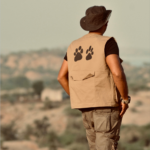 I once met with a patient who had acquired a life threatening infectious disease. He was hospitalized, with no friends or family. He told me that he had been raised in one of the wealthiest families in the region, spent his time partying on the family’s yachts and skiing in the Alps and Aspen; all those things that were just the norm for him. They had servants and he never had any responsibilities. As a young man he decided to get a remote cabin in the mountains and live like the film character, Jeremiah Johnson, a backwoodsman, along with his girlfriend.
I once met with a patient who had acquired a life threatening infectious disease. He was hospitalized, with no friends or family. He told me that he had been raised in one of the wealthiest families in the region, spent his time partying on the family’s yachts and skiing in the Alps and Aspen; all those things that were just the norm for him. They had servants and he never had any responsibilities. As a young man he decided to get a remote cabin in the mountains and live like the film character, Jeremiah Johnson, a backwoodsman, along with his girlfriend.Although still young, his health began to fail: his earlier, carefree partying days of sharing drug needles and bodily fluids with others had given him some diseases that weakened him so much that his leg broke while out hiking. His dog helped him get back to the cabin, but his girlfriend abandoned them. So, there he was, alone and very sick. Eventually some neighbours brought him into town and he made it to the infectious disease ward for treatment.
He said he had no skills for living: everything had been given to him with no challenges his whole life. He saw the folly of shirking any education in even the basic skills for taking care of oneself all too clearly.
Recognizing where one is at is the first step toward finding your way forward. This patient was ready and eager to begin work on what had been spoiled.
This topic is relevant to the New Year of Autumn. We get a chance, before or even after, finding ourselves lost and injured in a snow bank, to reflect on what we have learned this past year, and how we can move forward better in the new one. That patient had been raised to shirk responsibilities and assign blame to others for any problems or shortfalls. Now, in his solitude, he could see that he alone was in charge of his decisions after all, not others. Saying “I can do better and want to be responsible” was the most powerful thing he could do for himself.
The Hexagram, ‘Work on What Has Been Spoiled’ is not about what has been Spoiled: it is about Work. Just as moving forward into the world after the pandemic is not about what the Coronavirus did to us; it is about the honest work, without blame of oneself or others, and of adapting to a changed world.
Work is hard! with guidance from our ancestors and choosing to engage with the lessons in their books of wisdom, we, too, can see how to move forward, with awe and wonder and pride, and with reflection.
May your New Year be filled with growth, with wisdom from our elders, and a promise for the future.
Shana Tova…Susan J Katz
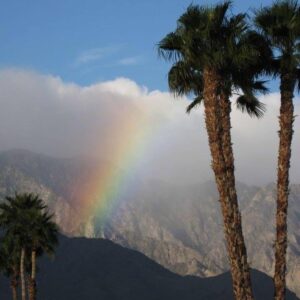
-
And You Want to Travel With Her
The past few days have been filled with music and words, sacred lyrics and meanings, which are emerging from the soil that has lain dormant for the past few years.
Maybe, this idea of dormancy is just with me, in my personal experience of slipping down into the pandemic in a strange new city, before I could ever even find the names of people or places around me.
And, maybe this awakening from dormancy is with everyone around the globe, all of us who have endured and survived the pall which fell upon humanity beginning in March of 2020.
Not all of the planet suffered: without the rampant, ceaseless and nauseous flow of automobiles, factory exhausts and emissions, and general noise that humans must make everywhere we go – honking horns, shooting weapons, driving jackhammers to dig up what was only last week paved, and blowing up mountains to extract ore and push in new highways – the other forms of life living on the planet had room and time and space to emerge, fly, swim, flock, procreate, and take up space.
Did we notice, though?
Most of us were busy using our brains to harness technology so that we could learn to order everything we need online and have our social lives and children’s schooling take place entirely that way. Being creatures who value tangibles such as grades and report cards, we did not factor in the much more important part of school than reading ‘riting, and ‘rithmetic: developing age-appropriate social skills.
But, here we are. We have vaccinated ourselves so that we can once again emerge from hiding from one another and go back to work, school, and caregiving. We bump into each other awkwardly, now in 3D, where we can’t just text or emoji our ideas and feelings to a differently coloured bubble on a screen and engage with non-verbal physical cues. You know, those social and interpersonal communication skills we learned in grade school, which, as pointed out above, our children missed out on.
And the birds and fish and polar ice caps and clean air and quiet that filled in while we were hiding away from each other, are being again overcome with the sound and the fury of human beings emerging, just as noisy and dangerous as we were before March of 2020, with noise and dirt and just as ignorant to the opportunities to listen and learn, as ever.
Instead, I see one big Temper Tantrum happening on this planet. We want it, and we want it now: the revenge travel, the revenge oppression of the oppressors, to cancel culture and overthrow governments, and abolish the the holy books and their millennia of accrued wisdom of the human condition. And why? Because nothing works anymore, and nothing is the way we want it.
It’s true, nothing is the way anyone wants it. We can’t stroll downtown and find the same lively scenes of arts and culture and shopping and commerce and restaurants and green spaces, because no one went down there to work and become culturally enriched for almost three years. Now, civic centres and universities are sites of social unrest, protests, confrontation, and homelessness. Offices are vacant, pedestrians and cyclists are struck by careless drivers, and there just aren’t enough social service resources to address all this anger and discontent and flaunting of established laws that only a few short years ago meant something. Now, everyone is a victim. Or a perpetrator.
This is so sad. Here, humanity has had a once in a millennium opportunity to emerge with a clean slate, only rivalled by the Great Flood that so many cultures have written about in their origin stories. In which everything that was known or understood was wiped out, everyone sheltered in place until it was over, and then slowly, tentatively, emerged.
Perhaps we are at the stage when the dove that the Biblical Noach sent out is coming back, because there is not yet any dry land with a tree for it to perch upon. Perhaps we are at one step before that, where anger and ignorance of the earth and its creatures had not yet fully been drowned out by the risen waters.
I think of Leonard Cohen’s poetic song, ‘Suzanne’. I think of the lyrics,
Now, Suzanne takes your hand and she leads you to the river
She’s wearing rags and feathers from Salvation Army counters
And the sun pours down like honey on our Lady of the harbor
And she shows you where to look among the garbage and the flowers
There are heroes in the seaweed, there are children in the morning
They are leaning out for love and they will lean that way forever
While Suzanne holds the mirrorDo you see Suzanne?
I do.
She is there, like us all, going out for the day to pick among the angry workers, selfish drivers, desperate people cutting each other off; to protesters telling us what to think or do, to the banning of library books, and the making of conversations where no one is listening, and no one is right, and everyone is wrong – and she is also finding flowers.
Suzanne shows you where to look among this mix of garbage and flowers, because there really are heroes amongst us who carry on with pride and honour despite harms and pettiness; and our children do go out in the morning.
You can see them – they are those of us who find ways to go about the day with love in our hearts, the children whose glad eyes gaze up to the morning sky and still know the sun and birds and subtle inspirations – there will always be people like this, and I feel safe and inspired and comforted.
